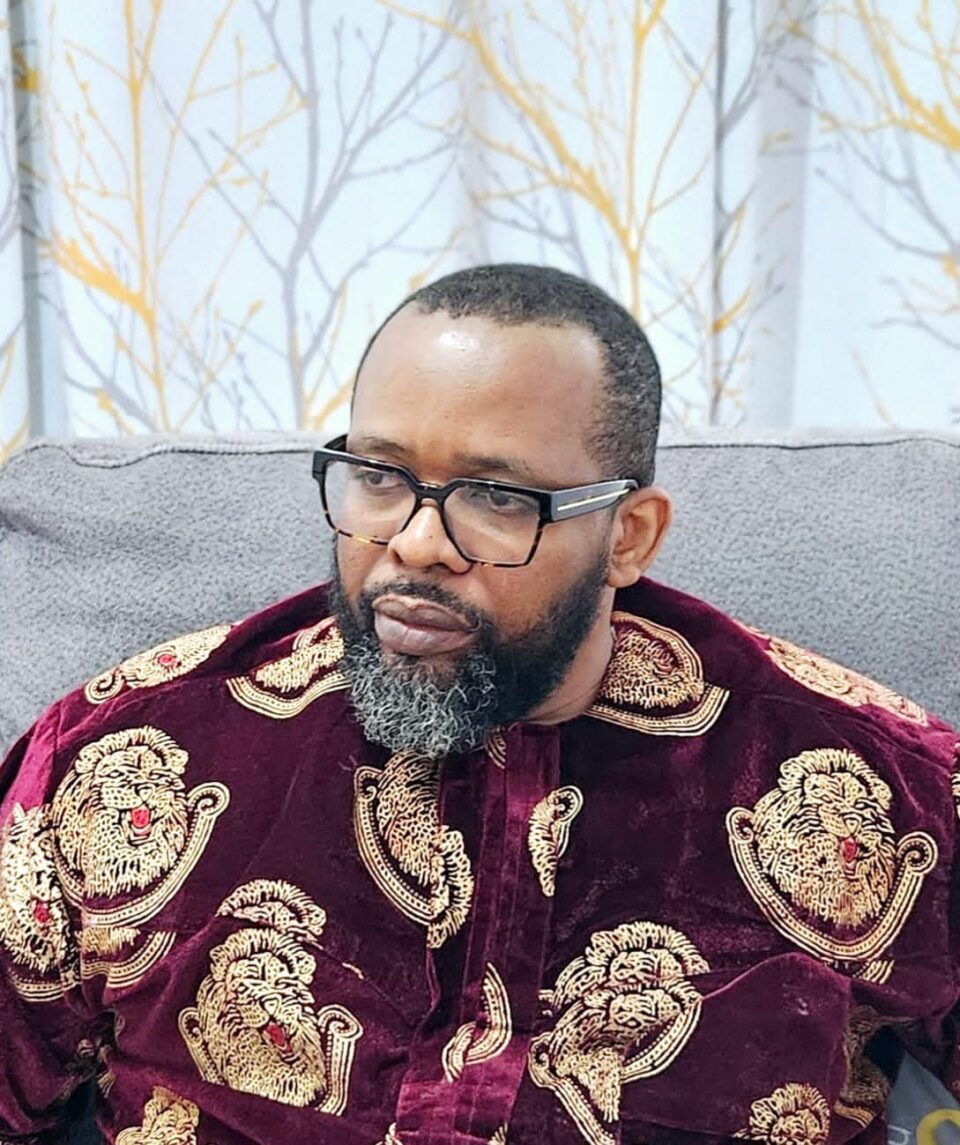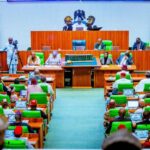One of the most compelling arguments for the remedial secession of the South-East region (Igbo-Biafra) from Nigeria is the consistent pattern of human rights abuses perpetrated by Nigerian security forces in the region. Over the past decades, the South-East has been subjected to widespread, systematic, and state-sponsored violations of human rights, primarily targeting the Igbo people, particularly the youth and self-determination activists. These violations have raised concerns that the actions of the Nigerian government amount to a deliberate attempt at ethnic cleansing. The situation in the South-East is distinguished by the state’s disproportionate use of force against peaceful protesters and its failure to address the legitimate political grievances of the region. This continued cycle of violence and repression has driven the push for self-determination and secession as a last resort to protect the Igbo people from further harm.
Human Rights Abuses: A Deliberate and Systematic Campaign
The Nigerian security forces, including the military, police, and other state-sponsored security agencies, have carried out numerous documented instances of human rights abuses in the South-East region. These abuses, which include extrajudicial killings, arbitrary arrests, torture, and enforced disappearances, have disproportionately affected the Igbo population, particularly those advocating for self-determination. Organisations such as Amnesty International, Human Rights Watch, and other international human rights groups have repeatedly raised concerns about the scale and intensity of the abuses committed by Nigerian security forces in the region.
One of the key characteristics of these violations is their targeted nature. The security forces have specifically focused on suppressing self-determination movements in the South-East region (Igbo-Biafra), rather than addressing broader criminal or terrorist activities. Pro-Biafran activists, who have been advocating for the right to self-determination through peaceful means, have often been met with brutal crackdowns by the Nigerian state. Protests calling for a referendum on Biafran independence or demanding greater autonomy for the South-East have frequently turned violent, not because of the protesters themselves but because of the excessive use of force by the Nigerian military and police.
The Use of Military Force and Operation Python Dance
The most notorious example of Nigeria’s militarisation of the South-East is Operation Python Dance, a military exercise that has been conducted in the region several times since 2017. Officially described as an operation to combat violent crimes and maintain law and order, Operation Python Dance has been widely condemned as a tool for suppressing political dissent and intimidating the Igbo population. The military’s heavy-handed approach during these operations has led to numerous deaths, injuries, and arrests of unarmed civilians, particularly young Igbo men. Videos and reports have surfaced showing soldiers publicly humiliating and torturing suspected pro-Biafran activists, further exacerbating the region’s sense of vulnerability and oppression.
The fact that such military operations are carried out in the South-East, while similar issues of insecurity in other parts of Nigeria—such as Boko Haram terrorism in the North-East or banditry in the North-West—are handled differently, raises concerns about the discriminatory nature of these interventions. In the northern regions, suspected terrorists or bandits are often treated with more leniency, including being offered opportunities for rehabilitation. However, in the South-East, peaceful protesters and activists are treated as enemies of the state and subjected to military-grade violence. This disparity reinforces the perception that the Nigerian government views the South-East, and the Igbo people in particular, as a threat to national stability, while turning a blind eye to other, more pressing security concerns in the country.
Ethnic Cleansing and Targeted Violence
The repeated and disproportionate use of force against the Igbo population has led to allegations that the Nigerian government is engaging in ethnic cleansing. Ethnic cleansing refers to the deliberate and systematic expulsion or elimination of an ethnic group from a particular area through violence or intimidation. In the case of the South-East, the Nigerian state’s actions appear to be aimed at weakening the Igbo population’s political will and diminishing their capacity to demand self-determination.
Young Igbo men, who are often seen as the future leaders of the pro-Biafran movement, have been particularly targeted. Reports indicate that hundreds of young men have been killed, arrested, or forcibly disappeared during protests or following military raids on suspected pro-Biafran strongholds. The sheer scale and intensity of these operations suggest that they are not simply efforts to maintain law and order, but are part of a broader strategy to suppress the South-East’s push for self-determination by eliminating its most vocal and active proponents.
The use of lethal force during peaceful protests is one of the most egregious examples of the Nigerian state’s disregard for the rights of the Igbo people. In 2016, for example, Nigerian security forces opened fire on unarmed protesters in the South-East city of Onitsha, killing dozens of people. Similar incidents have occurred in other cities across the region, including Aba, Umuahia, and Enugu. In many cases, these killings have been carried out without warning and without any attempt to de-escalate the situation through non-violent means. Amnesty International has described these incidents as extrajudicial executions, and human rights organisations have called for the Nigerian government to be held accountable for its actions.
The Failure of the Nigerian State to Protect the South-East
The Nigerian state’s failure to protect the South-East from human rights abuses is not only a reflection of its neglect of the region’s legitimate political grievances but also a violation of its responsibility to protect its citizens. The principle of the Responsibility to Protect (R2P), which has been endorsed by the United Nations, holds that states have a duty to protect their populations from genocide, war crimes, ethnic cleansing, and crimes against humanity. When a state fails to uphold this responsibility, or worse, when it is the perpetrator of such crimes, the international community has a moral and legal obligation to intervene.
In the case of the South-East, the Nigerian government has not only failed to protect the Igbo people from human rights abuses, but it has also actively participated in these violations. The state’s use of military force against civilians, its targeting of peaceful protesters, and its refusal to investigate or prosecute those responsible for these crimes all point to a broader policy of repression aimed at silencing the South-East’s demands for self-determination. This pattern of abuse has led many in the South-East to conclude that the Nigerian state is not acting in their best interests and that secession may be the only way to ensure their safety and security.
Human Rights Abuses as a Justification for Secession
Under international law, the right to remedial secession is recognised in cases where a group or region has been subjected to gross and systematic human rights abuses, and where the state has failed to protect them or is actively complicit in their persecution. The principle of remedial secession, as highlighted in cases such as the International Court of Justice’s advisory opinion on Kosovo and the African Commission on Human and Peoples’ Rights’ ruling in Katanga vs. Zaire, allows for secession as a last resort when a group’s fundamental rights are consistently violated.
In the case of the South-East region (Igbo-Biafra), the persistent human rights abuses perpetrated by the Nigerian state, combined with the region’s long-standing political and economic marginalisation, provide a strong legal and moral basis for pursuing secession. The Igbo people have been subjected to ethnic violence, political exclusion, and economic deprivation for decades, and their attempts to address these grievances through peaceful means have been met with violence and repression. The failure of the Nigerian state to protect the Igbo people from human rights abuses, and its active participation in these abuses, demonstrates that the South-East has exhausted all available domestic remedies and that secession may be the only way to safeguard the region’s future.
The Push for Self-Determination and the Desire for a New Governance System
The ongoing cycle of human rights abuses in the South-East has fuelled the region’s push for self-determination and the desire to establish a new governance system that truly respects both individual and collective rights. The current Nigerian state, with its centralised power structure and its history of violence against the South-East, is seen by many Igbo people as incapable of providing the protection, representation, and justice that they deserve.
A key motivation behind the South-East’s pursuit of secession is the desire to escape the repetitive cycle of violence and repression that has characterised the region’s relationship with the Nigerian state. For decades, the Igbo people have faced systematic discrimination, exclusion from political power, and violent repression of their efforts to advocate for their rights. The establishment of an independent Biafran state would allow the Igbo people to build a governance system that prioritises human rights, equality, and justice, and that is responsive to the needs and aspirations of the South-East.
The objective of the South-East’s push for self-determination is not only to secure political independence but also to create a society that respects the rights of all its citizens, regardless of ethnicity, religion, or political affiliation. The Igbo people envision a governance system that is based on the rule of law, that protects the fundamental rights of individuals and communities, and that provides opportunities for economic development and social progress. This vision of a just and inclusive society stands in stark contrast to the current Nigerian state, which has failed to provide the Igbo people with the protection and representation they deserve.
Conclusion: Human Rights Abuses and the Case for Remedial Secession
The deliberate and systematic human rights abuses perpetrated by Nigerian security forces in the South-East region (Igbo-Biafra) provide a strong justification for remedial secession. The Nigerian state has not only failed to protect the Igbo people from violence and repression but has also been complicit in these abuses, using military force to suppress peaceful protests and intimidate those advocating for self-determination. The repeated cycle of violence, coupled with the state’s failure to address the region’s legitimate political grievances, has left the South-East with no choice but to pursue secession as a means of protecting its people and securing their future.
Under international law, when a state engages in or allows gross human rights violations against a specific group, and when that group has exhausted all domestic remedies, secession may be a legitimate response. In the case of the South-East, the persistent human rights abuses, the targeting of pro-Biafran activists, and the failure of the Nigerian government to provide protection or accountability make the case for remedial secession both legally and morally compelling. For the Igbo people, secession offers a pathway to self-determination, justice, and the creation of a governance system that truly respects their rights and aspirations.
Uche Mefor, is the Convenor of the Igbo-Biafra Nationalists and the Indigenous People of Igbo Nation for self-determination



